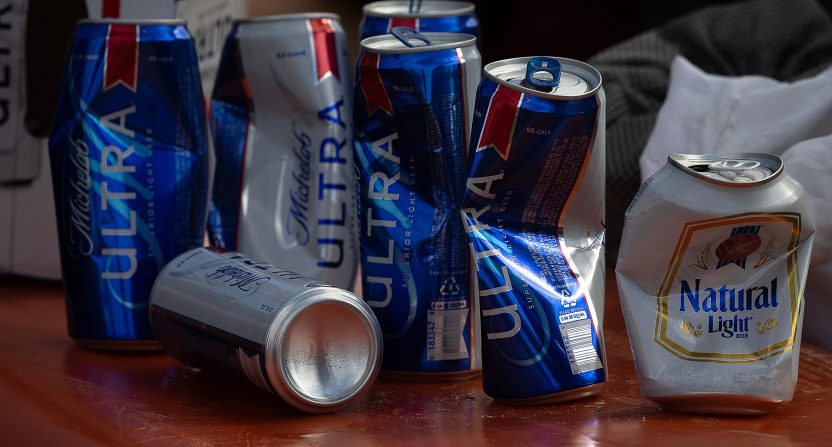Whether or not the NCAA Tournament expands beyond its current 68-team format may come down to beer money.
Yes, you read that right. Booze sponsors are a key part of making the economics of expansion work, Rachel Bachman of the Wall Street Journal reports. As most have probably heard by this point, the NCAA is considering expanding March Madness to either 72 or 76 teams as soon as next season. However, expansion doesn’t necessarily guarantee more revenue for the NCAA.
CBS and TNT Sports, who jointly own broadcast rights for the men’s tournament, aren’t required to pay a dime more to the NCAA even if the field is expanded. The same goes for ESPN, which broadcasts the women’s tournament. So where is the financial incentive for expansion?
Well, the incentives lie within the unique structure of the NCAA’s deal with CBS and TNT Sports. Whereas most leagues sell broadcast rights and official sponsorships separately, the NCAA gave control of its sponsorship program to CBS and TNT Sports as part of its 2010-era media rights deal that has been extended through 2032. The networks use that sponsorship revenue to offset a portion of its $1 billion annual rights payment to the NCAA.
In other words, for expansion to make sense economically, the NCAA has to let CBS and TNT Sports expand outside of banks and cell carriers like Capital One and AT&T and into beer and seltzer brands like Bud Light and Truly.
“To make expansion pencil out, a person familiar with the situation says, the NCAA needs to wring significant amounts of money from selling official NCAA sponsorships in categories it has previously shunned: beer, wine and hard alcohol,” Bachman reports.
This reporting makes a lot of sense. On paper, it didn’t appear as if expanding the tournament by four or eight teams would generate any significant amount of additional revenue for CBS or TNT Sports. The added inventory would amount to a few extra play-in games, already some of the least-watched games of the tournament, and there weren’t any clear television windows to put the additional games in. Why would the networks pay more for adding what amounts to the worst games of the tournament?
Some type of horsetrading had to be involved, and it seems this is it. CBS and TNT Sports will pay the NCAA a bit more for the added games while the NCAA allows the networks to sell alcohol sponsorships.
Expansion still isn’t a sure thing, but an arrangement like this makes it seem a lot more sensible than it did just a few days ago.
